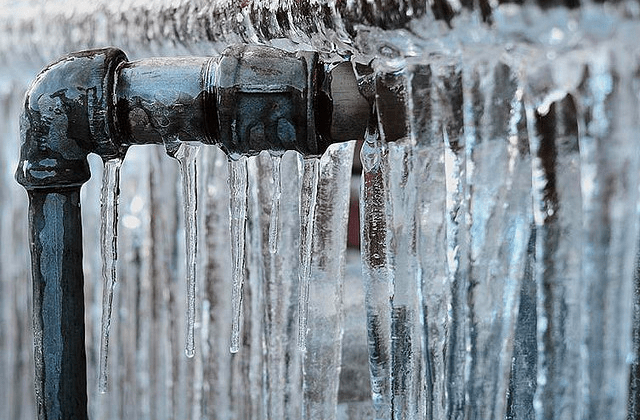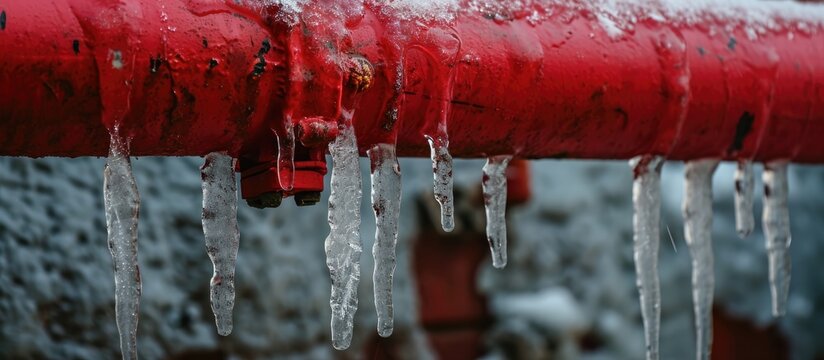Important Advice to Avoid Frozen Pipes in Winter: Specialist Insights
Important Advice to Avoid Frozen Pipes in Winter: Specialist Insights
Blog Article
This article directly below relating to Prevent Frozen Pipes is highly insightful. Don't bypass it.

Winter can wreak havoc on your plumbing, specifically by freezing pipelines. Here's just how to stop it from happening and what to do if it does.
Intro
As temperature levels drop, the danger of icy pipes rises, potentially bring about expensive repairs and water damage. Recognizing exactly how to stop frozen pipes is vital for house owners in chilly environments.
Understanding Icy Pipes
What creates pipes to freeze?
Pipes freeze when exposed to temperatures below 32 ° F (0 ° C) for prolonged periods. As water inside the pipes freezes, it expands, taxing the pipe wall surfaces and potentially creating them to rupture.
Dangers and damages
Icy pipelines can result in supply of water disruptions, building damages, and pricey repair work. Burst pipes can flooding homes and cause considerable structural damage.
Signs of Frozen Water Lines
Determining frozen pipelines early can avoid them from breaking.
Exactly how to identify icy pipes
Look for decreased water circulation from taps, unusual smells or noises from pipelines, and noticeable frost on revealed pipes.
Prevention Tips
Protecting susceptible pipes
Wrap pipelines in insulation sleeves or utilize heat tape to protect them from freezing temperatures. Focus on pipes in unheated or exterior areas of the home.
Heating methods
Maintain indoor rooms appropriately heated, specifically areas with plumbing. Open closet doors to allow cozy air to flow around pipes under sinks.
Protecting Outside Plumbing
Yard pipes and exterior faucets
Detach and drain garden tubes prior to winter months. Set up frost-proof faucets or cover exterior faucets with shielded caps.
What to Do If Your Pipes Freeze
Immediate activities to take
If you believe icy pipes, maintain taps open up to soothe pressure as the ice thaws. Make use of a hairdryer or towels soaked in hot water to thaw pipelines slowly.
Long-Term Solutions
Architectural modifications
Consider rerouting pipelines away from outside walls or unheated areas. Include added insulation to attic rooms, basements, and crawl spaces.
Updating insulation
Purchase top notch insulation for pipes, attics, and wall surfaces. Proper insulation helps maintain consistent temperatures and reduces the risk of icy pipes.
Final thought
Avoiding frozen pipes calls for proactive steps and quick actions. By comprehending the causes, indicators, and preventive measures, property owners can protect their pipes during winter.
Helpful Tips to Prevent Frozen Pipes this Winter
UNDERSTANDING THE BASICS: WHY PIPES FREEZE AND WHY IT’S A PROBLEM
Water freezing inside pipes is common during the winter months, but understanding why pipes freeze, and the potential problems it can cause is crucial in preventing such incidents. This section will delve into the basics of why pipes freeze and the associated problems that may arise.
THE SCIENCE BEHIND FROZEN PIPES
When water reaches freezing temperatures, it undergoes a physical transformation and solidifies into ice. This expansion of water as it freezes is the primary reason pipes can burst. As the water inside the pipe freezes, it expands, creating immense pressure on the walls. If the pressure becomes too great, the pipe can crack or rupture, leading to leaks and water damage.
FACTORS THAT CONTRIBUTE TO PIPE FREEZING
Low Temperatures: Extremely cold weather, especially below freezing, increases the risk of pipes freezing. Uninsulated or Poorly Insulated Pipes: Pipes located in unheated areas, such as basements, crawl spaces, or attics, are more prone to freezing. Insufficient insulation or lack of insulation altogether exacerbates the problem. Exterior Wall Exposure: Pipes running along exterior walls are susceptible to freezing as they encounter colder temperatures outside. Lack of Heating or Temperature Regulation: Inadequate heating or inconsistent temperature control in your home can contribute to frozen pipes. PROBLEMS CAUSED BY FROZEN PIPES
- Pipe Bursting: As mentioned earlier, the expansion of water as it freezes can cause pipes to burst, resulting in significant water damage.
- Water Damage: When pipes burst, it can lead to flooding and water damage to your property, including walls, ceilings, flooring, and personal belongings.
- Structural Damage: Prolonged exposure to water from burst pipes can compromise the structural integrity of your home, leading to costly repairs.
- Mold and Mildew Growth: Excess moisture from water damage can create a favorable environment for mold and mildew growth, posing health risks to occupants.
- Disrupted Water Supply: Frozen pipes can also result in a complete or partial loss of water supply until the issue is resolved.
WHY CERTAIN PIPES ARE MORE PRONE TO FREEZING
- Location: Pipes located in unheated or poorly insulated areas, such as basements, crawl spaces, attics, or exterior walls, are at higher risk of freezing.
- Exterior Pipes: Outdoor pipes, such as those used for irrigation or exposed plumbing, are particularly vulnerable to freezing as they are directly exposed to the elements.
- Supply Lines: Pipes that carry water from the main water supply into your home, including the main water line, are critical to protect as freezing in these lines can affect your entire plumbing system.
- Underground Pipes: Pipes buried underground, such as those connected to sprinkler systems or outdoor faucets, can be susceptible to freezing if not properly insulated.
https://busybusy.com/blog/helpful-tips-to-prevent-frozen-pipes-this-winter/

Do you appreciate reading up on Prevent Frozen Pipes ? Give a review directly below. We'd be happy to know your reactions about this post. We hope that you visit us again in the near future. Remember to pause to distribute this entry if you enjoyed it. Thanks for being here. Kindly come by our blog back soon.
Website Report this page